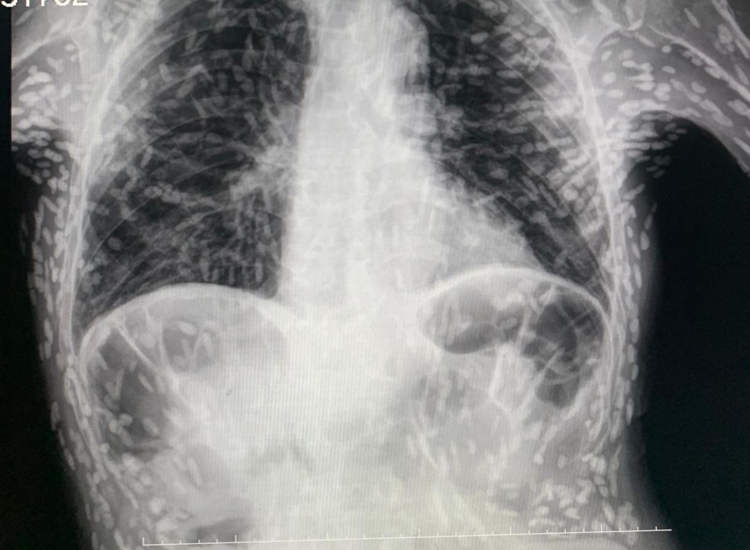A Brazilian doctor recently shocked millions on social media by posting an X-ray of a man suffering from cysticercosis whose body was riddled with calcified tapeworm eggs.
Last month, Doctor Vitor Borin de Souza, a resident at the Hospital das Clínicas in Botucatu, Sao Paulo, posted an X-ray of a patient on Twitter to show his followers how bad a tapeworm infection could get. The doctor explained that the white spots visible all through his midsection and his arms were calcified tapeworm eggs following infection with the common intestinal parasite. Luckily, the patient, who had come in for a checkup following a persistent cough, was in no danger from the eggs, as they were all calcified (unviable). Although the tapeworm eggs (cysticerci) posed no threat to the man’s health, they caused quite the stir on Brazilian social media.

Photo: Doctor Vitor Borin de Souza/Twitter
“These lesions are calcified, so they are not viable cysticerci,” Dr. de Souza explained on Twitter. “If it doesn’t cause any discomfort, life goes on.”
Considered rare in Brazil, with less than 150 thousand cases per year, cysticercosis is a disease caused by the ingestion of tapeworm eggs. It usually occurs in intermediate tapeworm hosts, which usually means pigs and bovines, but humans can sometimes become intermediate hosts as well, which means virtually any or all of their organs can be infested with parasite eggs.
It’s a gruesome thing to imagine, but even harder to look at, but cysticercosis is a real concern in countries where basic rules of hygiene are often disregarded. Although any organ can become infested with cysticerci, the brain is by far the most problematic. Neurocysticercosis causes 50,000 deaths per year and is the most common cause of acquired epilepsy worldwide.
Studies have shown that massive cysticercosis such as the case displayed in Dr. Souza’s X-ray occurs in immunosuppressed patients who have a more vulnerable immune system.












